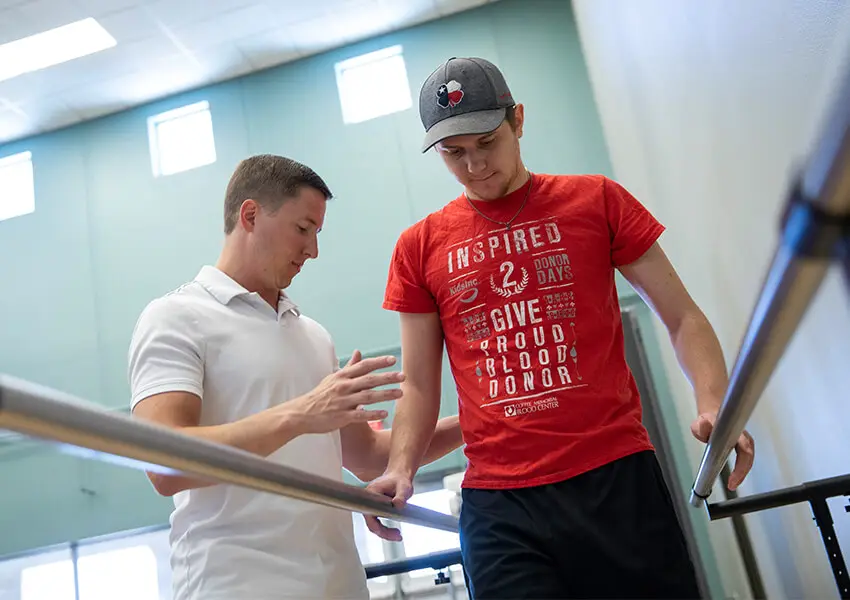Counseling For Traumatic Brain Injury Recovery
Following brain trauma or acquired brain injury, patients may exhibit modifications to behavior, emotion, and cognitive abilities. The field of neuropsychology seeks to understand how these modifications are correlated with the brain injury, providing an informed pathway toward progress, and a most effective rehabilitation regimen.
At Moody Neuro, our Neuropsychology Department contributes to client care in three important ways: (1) comprehensive neuropsychological assessment, (2) cognitive rehabilitation and (3) management of emotional and behavioral problems.
Upon admission, every client participates in a detailed assessment of his/her cognitive and emotional status. This comprehensive evaluation assesses all aspects of an individual’s cognitive skills: attention, planning and organization, language, visual processing skills, motor and sensory functioning, and memory. Patient mood and personality are also assessed.
The results of this evaluation provide information about the client’s cognitive strengths, which allows the interdisciplinary treatment team to develop maximally-effective treatment plans and prioritize interventions. In addition, the neuropsychology team assists the client in adjusting to his/her disability, manages undesirable behaviors, provide individual and group therapy to survivors, and conducts family therapy when necessary.
Seeking help after a traumatic brain injury is crucial for a successful recovery. A TBI can result in a wide range of physical, cognitive, and emotional challenges that may not be immediately apparent. Professional traumatic brain injury counseling offers vital support and guidance, enabling individuals to navigate these difficulties more effectively.
The Benefits of Early Intervention
TBI support counseling at the earliest stages following a brain injury can significantly improve recovery outcomes. Early intervention through counseling for brain injury recovery can address emerging symptoms before they become deeply ingrained, offering strategies to cope with and manage cognitive and emotional hurdles.
Trained therapists can provide personalized strategies for coping with anxiety, depression, and other mental health issues that often accompany a traumatic brain injury. Moreover, they can help patients develop adaptive skills and techniques to improve their daily functioning and quality of life. By seeking traumatic brain injury support therapy early, individuals can foster a more resilient and supportive recovery environment, ultimately contributing to better long-term outcomes.
Empathetic TBI Psychological Support Tailored to Your Needs
Navigating life post-TBI can be overwhelming, but you do not have to face it alone. Our team of experienced professionals offers compassionate counseling for brain injury recovery to help you rebuild your life with confidence and resilience.
At a, we prioritize your well-being and strive to empower you on your path to recovery. Contact us today to schedule an appointment and take the first step towards a brighter future.
Success Stories

Admissions Department
409-762-6661
8:00 AM – 5:00 PM
